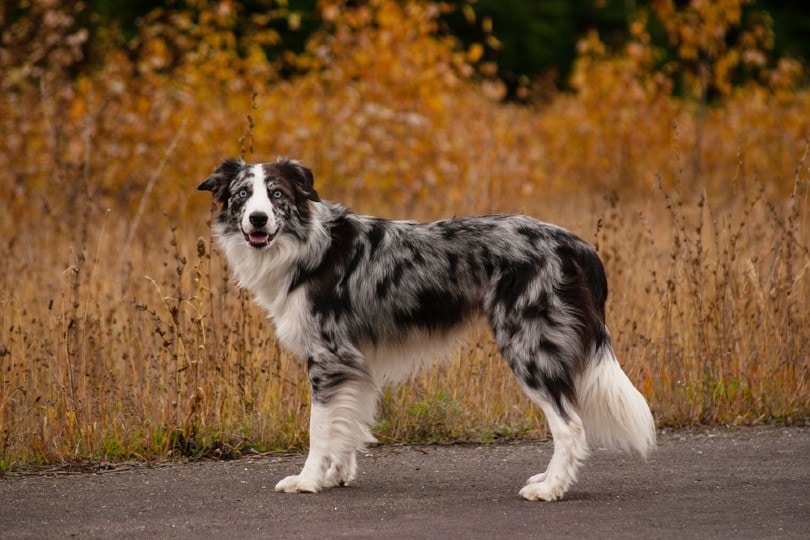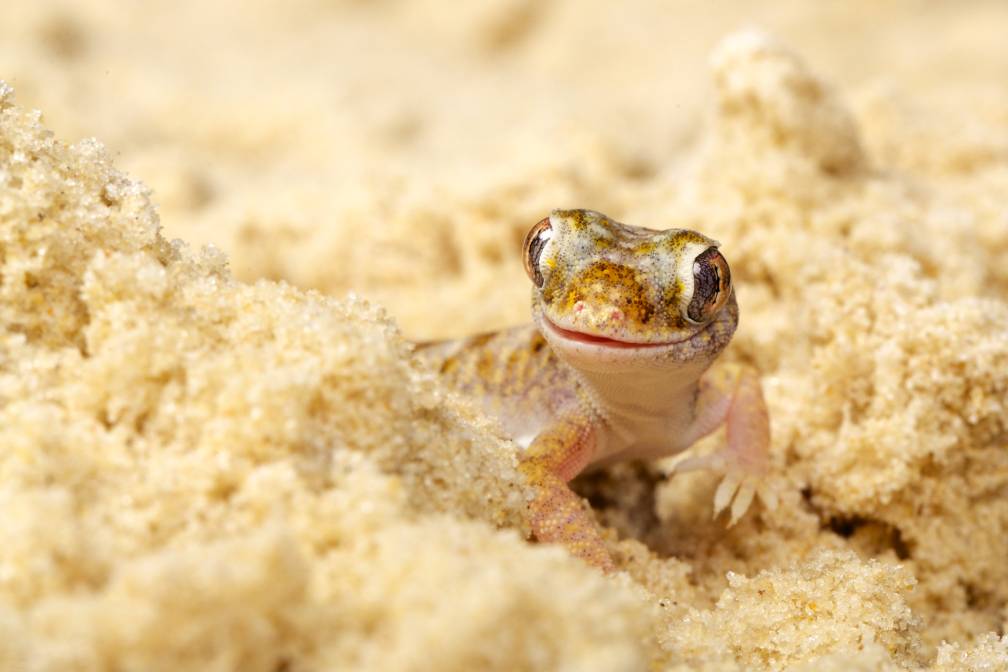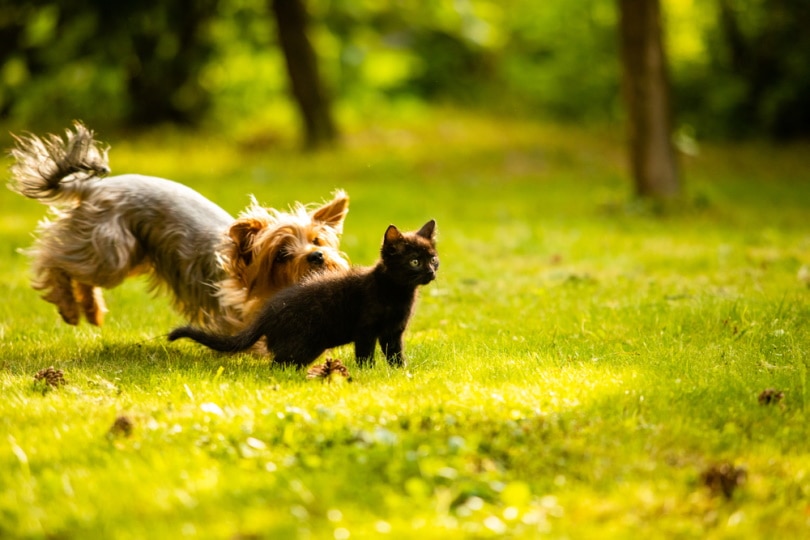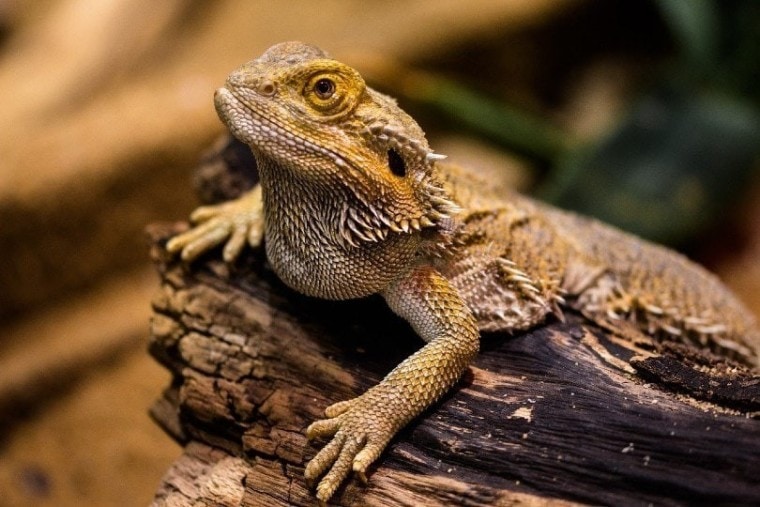
Click to Skip Ahead
When you own reptiles, it can catch you off guard when something suddenly goes wrong. You usually don’t see as many signs as you will with mammals, so it can be a little tricky to figure out the problem and how long it’s been going on. Impaction is a potentially dangerous issue that causes a blockage in your beardie’s digestive tract.
While treatable, it can be hazardous if the issue goes unnoticed. Detecting problems early on helps with everything from quick treatment to prevention in the future. Let’s learn exactly what you’re looking for so you can act fast.
What Is Impaction?
Impaction is essentially a horrible case of constipation. Waste gets bound up inside your beardies’ intestinal tract, and then they cannot eliminate as they should. If you notice that your dragon hasn’t passed a stool in quite some time, impaction might very well be to blame.
If they go too long without going to the bathroom, waste can build up inside, which eventually leads to paralysis and death. It’s one of the most common death causes in bearded dragons, so it’s absolutely imperative to know when it’s happening.
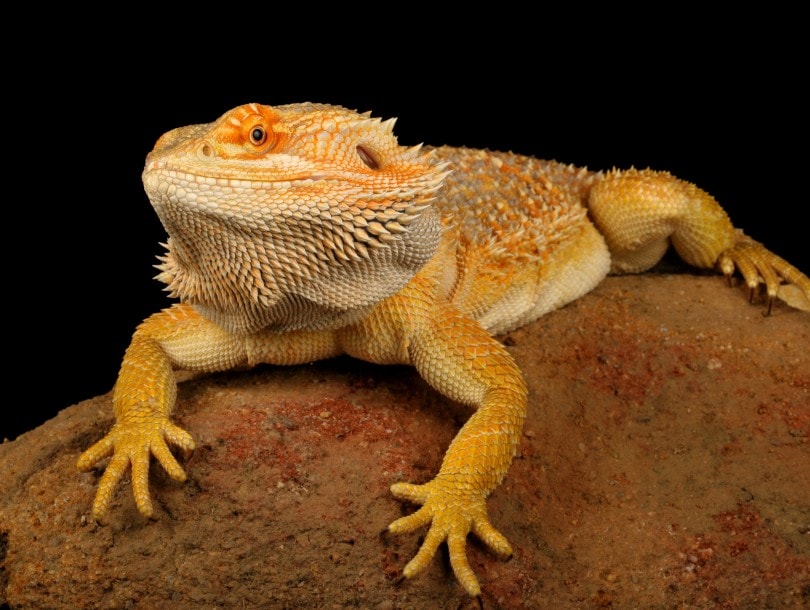
The 4 Causes of Impaction
There are a few factors that can contribute to impaction. Mainly, food, temperature, and substrate contribute to impaction if balance is off. It’s important to keep all components just right to make sure your bearded dragon has an adequate environment.
1. Food
Your beardie needs a well-balanced diet of protein, fiber, vitamins, and minerals. More importantly, they need fresh, clean water to help with digestion, too. If your beardie is lacking, it might slow up their system.
Because wild bearded dragons often drink droplets of morning dew or rain, many owners spray their habitat to mimic rainfall. However, you can offer a flowing water source as well. Stagnant dishes of water tend to collect bacteria and growth, which can lead to adverse effects.
Young bearded dragons need a diet consisting of 80% gut-loaded insects like crickets, mealworms, and superworms. They also need lots of fresh veggies packed with fiber to aid in digestion. This ratio is inversely proportional in mature bearded dragons; they require a diet that is mostly vegetables and just a small amount of gut-loaded insects (often dusted with a supplement powder). Juvenile bearded dragons, on the other hand, require a diet that’s about equal in both insects and vegetables.
2. Poor Temperatures
If your beardie isn’t living in the right temperatures, it can cause impaction, too. In the wild, beardies live in hot, dry, desert climates. Like all cold-blooded animals, bearded dragons rely on their ambient temperature to regulate their metabolism. Their acceptable ambient temperature range is 77–89.6°F (25–32°C), but the hot basking area needs a higher temperature of 95–100.4°F (35–38°C). Your bearded dragon also needs a cool nighttime area with a temperature range of 71.6–77°F (22–25°C).
If your bearded dragon is too cold, it can severely slow down their digestion and cause buildup. So, always make sure to keep a thermometer attached to the inside of the cage to get an accurate reading.
3. Substrate
Many bearded dragons experience impaction because of the substrate in their enclosure. When your beardie snatched up a cricket, they might also get a few pellets or grains of the substrate with it. Since they can’t digest it, it can get bound up inside of them along with their digesting food.
That is why you shouldn’t use tiny particles like dirt, gravel, or sand. Instead, it’s better to use solid sheets, like reptile carpet. Flat, debris-free bottoms are also cheap and easy to clean.
4. Foreign Body Ingestion
Bearded dragons can also become impacted if they eat something they’re not supposed to. This can be something like a part of an inappropriate toy, a loose button on your clothes that they found intriguing when you were handling them, or anything else that might have resembled food but isn’t edible.
Signs of Impaction
Your beardie might be suffering from impaction if you notice:
Impaction can easily lead to the inability to use back legs, so they might drag themselves with their front. If impaction has reached this point, it will probably require more care than a warm bath and massage.
This condition is time-sensitive, so if you notice any signs, you need to act right away. Your vet will likely prescribe an enema or laxative to help them pass the mass, depending on the cause of the impaction.
How to Help Impaction
If you suspect impaction is a problem for your beardie, you can try some things at home to see if they will pass the stool. When the situation is still mild, you might be able to help at home. If you can’t, it’s imperative to locate an exotic pet vet.
Your beardie might not pass the stool right away, but this process should speed things up. If you notice no change, make sure you contact a vet without hesitation. They might be able to give you some more tips or tricks you can try at home or advise that you bring them in for an exam.
On top of these steps, you can check basking temperatures and food intake. Change things up, if needed. You can go over your normal care routine with your vet to see if they suggest doing anything differently.
When to See a Vet
If you have tried to take care of the situation at home without success, it’s time to see an exotic vet. If you have never taken your beardie before, exotic vets can cost a bit more and be a little trickier to find in some areas. Call around to different clinics to see if they work with reptiles. Please note that some conditions (such as the ingestion of a foreign body) require surgical intervention that only a veterinarian can perform; if you suspect this is the cause for your beardie’s impaction, you shouldn’t waste time with at-home fixes (they likely won’t help).
Impaction can eventually lead to death if there’s no resolve. So, locating a vet before you even try any at-home methods is crucial. They will be able to guide you on how to proceed. Since impaction is such a leading cause of untimely death for beardies, it’s always best to be safe rather than sorry.
Impaction Prevention
If you follow all of the right steps to proper care, impaction shouldn’t be an issue for your bearded dragon.
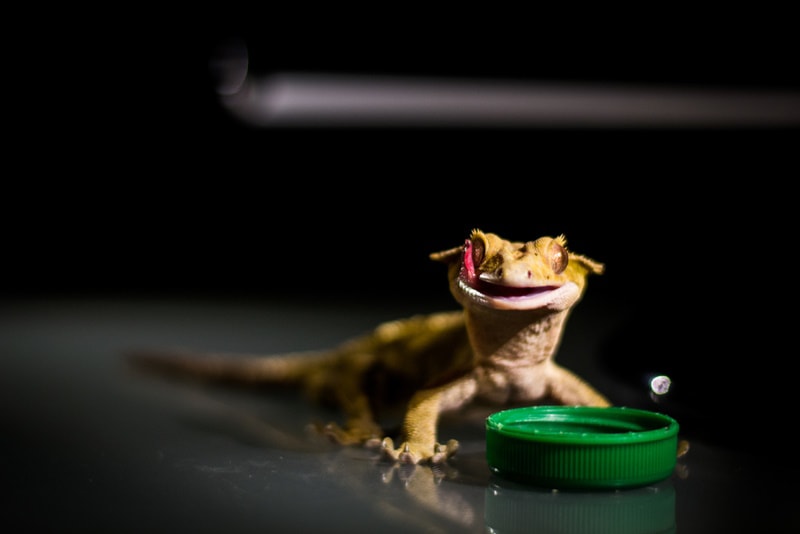
Final Thoughts
If you suspect your bearded dragon is impacted—or even mildly constipated—there are ways you can help. However, if the impaction is advanced, you will assuredly need the help of a professional.
If you can’t resolve this issue at home, or if you think your beardie is in pain, contact your vet immediately. Impaction can be life-threatening and isn’t something that can wait for long.
Featured Image Credit: Gerhard G., Pixabay




